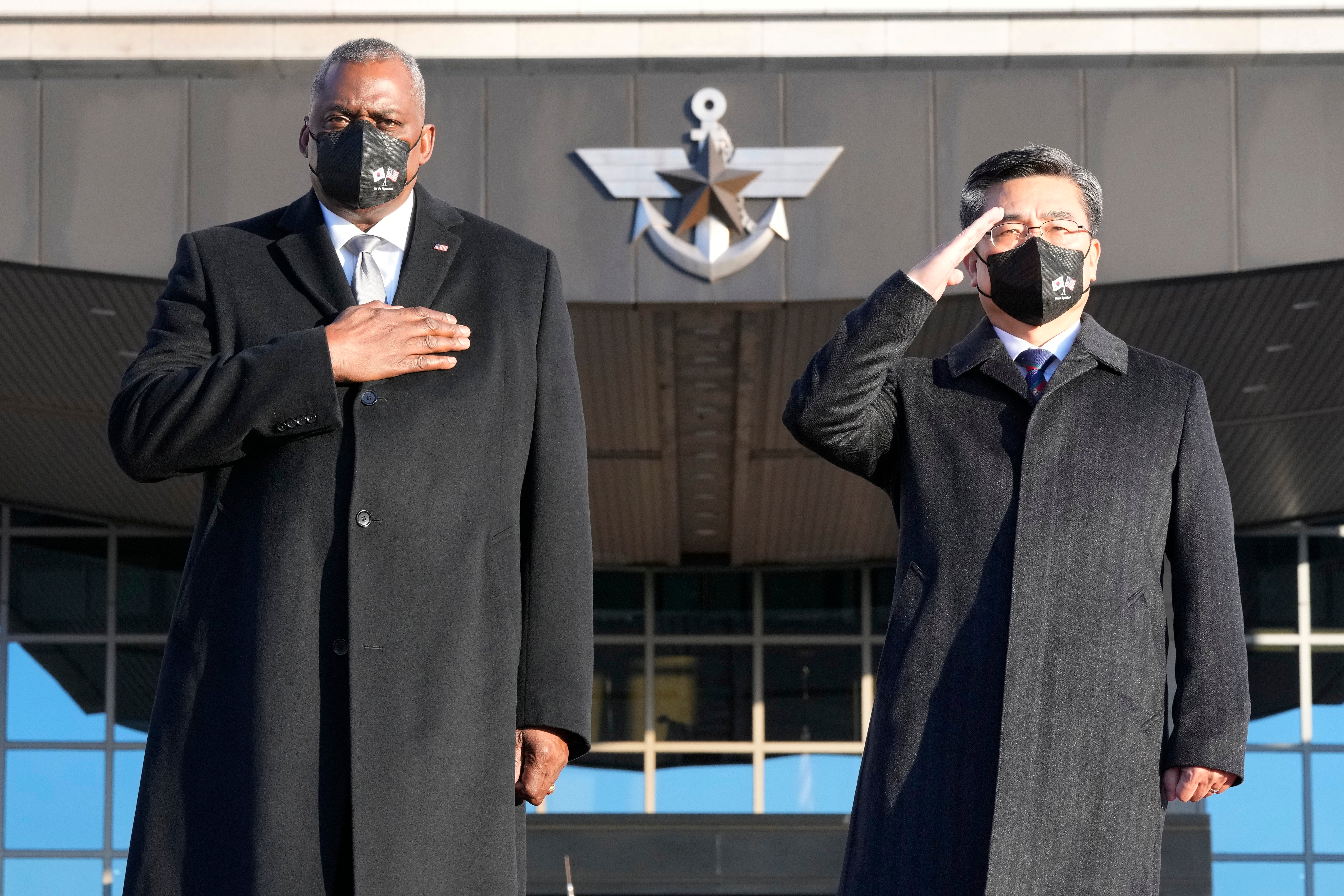US, South Korea defense chiefs discuss boosting alliance
The South Korean and U.S. defense chiefs are meeting for their annual talks, as Washington pushes to reinforce alliances with its partners to curb mounting challenges from China and increasing North Korean nuclear threats

The South Korean and U.S. defense chiefs met Thursday for their annual talks, as Washington pushes to reinforce alliances with its partners to curb mounting challenges from China and increasing North Korean nuclear threats.
After the talks, the allies were expected to announce a boosting of their decades-long military alliance while U.S. Defense Secretary Lloyd Austin will likely reaffirm America’s extended deterrence to South Korea using its full range of military capabilities.
But it was unclear how much Seoul would do to ease historical tensions with Japan, another key U.S. regional ally, and whether it would play a greater regional security role beyond the Korean Peninsula amid opposition from China, some experts say.
“The US-ROK Alliance is the linchpin of peace and security in this region and we will work together as we move toward a #FreeandOpenIndoPacific,” U.S. Defense Secretary Lloyd Austin tweeted upon arrival in South Korea on Wednesday, referring to a regional initiative aimed at countering China’s growing assertiveness in the region.
Earlier this week, the Pentagon released the results of a global posture review that directs additional cooperation with allies and partners to deter “potential Chinese military aggression and threats from North Korea.” The review also informed Austin’s approval of the permanent stationing of a previously rotational attack helicopter squadron and artillery division headquarters in South Korea.
South Korean defense officials called the contents of the review a sign that both Seoul and Washington highly value the alliance.
Austin’s meeting with South Korean Defense Minister Suh Wook is the first between the two countries' defense ministers since President Joe Biden took office in January.
Under Biden’s predecessor, Donald Trump, the alliance, forged in blood during the 1950-53 Korean War, was tested as Trump threatened to pull U.S. troops out of South Korea if Seoul did not drastically increase its financial support for them. Trump also repeatedly complained of the cost of regular military drills between Washington and Seoul.
In recent years, the U.S. and South Korea have also cancelled or downsized some of their military drills to support now-dormant nuclear diplomacy with North Korea and as a step to protect their troops from COVID-19. North Korea has called such drills an invasion rehearsal and responded with its own costly military exercises or weapons tests.
Despite severe pandemic-related economic hardships, North Korea has continuously rebuffed U.S. offers to resume talks, saying Washington must first abandon its hostility toward the North. The Biden administration maintains that international sanctions on North Korea will stay in place unless the country takes concrete steps toward denuclearization.
South Korea has been reluctant to join U.S.-led regional initiatives to check China's rise because its export-driven economy heavily relies on China, its biggest trading partner. Seoul's diplomatic and trade spats with Japan, which largely originate from Tokyo’s past colonization of the Korean Peninsula, have also compounded the prospects for a U.S. push to solidify its trilateral security cooperation with its two key Asian allies.
Last month, a U.S.-sponsored show of alliance with South Korea and Japan stumbled after American diplomats couldn’t convince their Asian allies to share a news conference stage following their meeting in Washington due to what Seoul called a dispute over islets claimed by both South Korea and Japan.
“Washington is also looking for Seoul to do more beyond the (Korean) Peninsula, which would involve trilateral cooperation with Japan despite tensions over history, and contributing to Asia’s maritime security despite objections from China,” said Leif-Eric Easley, a professor at Seoul’s Ewha University.
Whether South Korea can substantially bolster its alliance with the U.S. and join its regional security initiatives will be largely impacted by who wins South Korea’s presidential election in March, some experts say.
Lee Jae-myung, the ruling liberal party candidate, favors pragmatic diplomacy between Washington and Beijing, while his main conservative rival Yoon Suk Yeol has said that if elected he would strengthen security cooperation with Washington and Tokyo to better cope with North Korean threats.
Bookmark popover
Removed from bookmarks